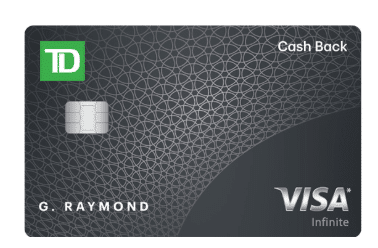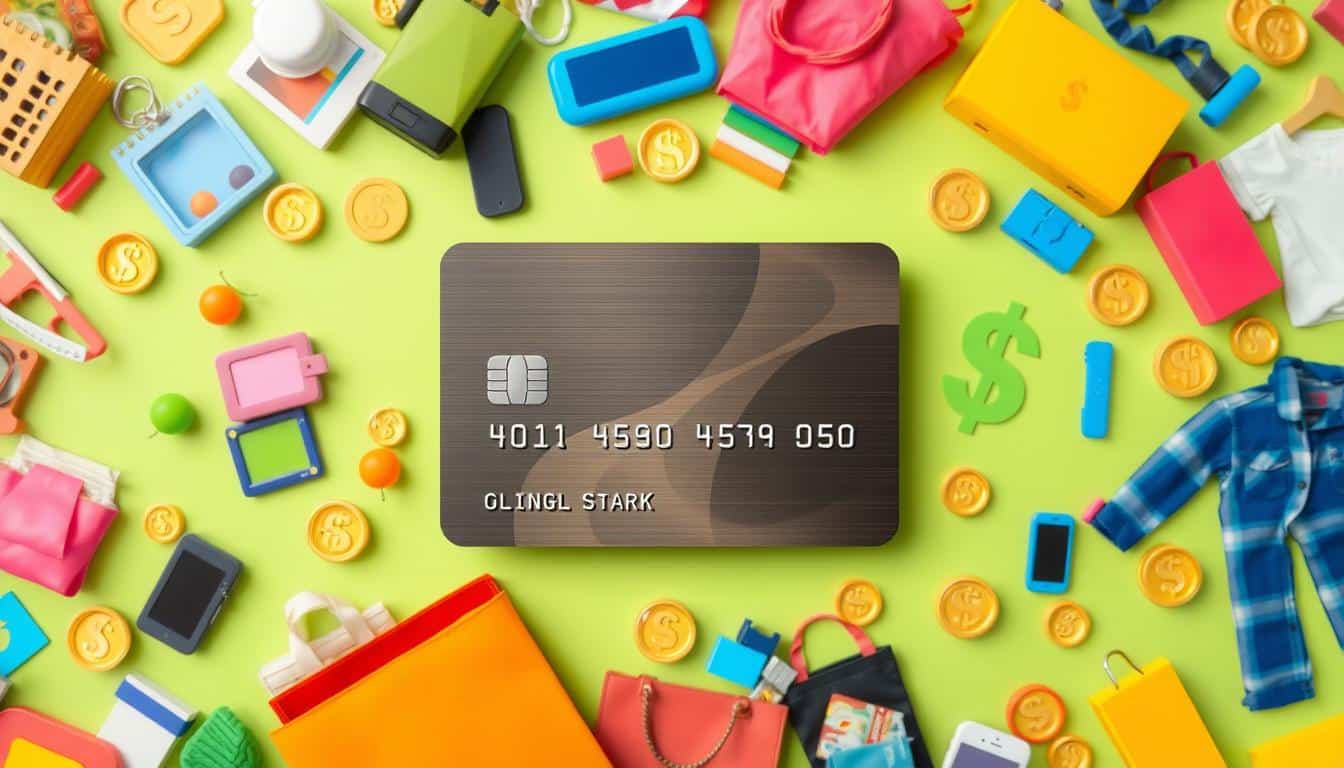Exploring consumer spending trends is key to understanding the US economy’s health. This article dives into the factors that shape how people spend their money in the US. It looks at expert opinions and current studies.
We’ll look at how people feel about spending, how different ages spend differently, and the economic factors at play. We’ll also discuss tariffs and inflation to see how they might change spending habits over time.
Anúncios

TD Cash Back Visa Infinite* Card
Introduction to Consumer Spending Trends
Consumer spending is vital for the US economy. It makes up a big chunk of the economy, focusing on things people buy. This covers goods and services called personal consumption expenditures. Knowing how consumer spending changes gives important insights. These insights help those in charge and companies understand the market better.
There’s a recent shift in how people spend, affected by the economy, inflation, and jobs. Analyzing these shifts shows the impact of consumer confidence on spending. This helps stakeholders make smart choices and adjust their plans to keep up with what consumers want.

Factors Influencing Consumer Spending
Many things shape how much people spend, like inflation and jobs. Knowing these factors helps us understand why people buy certain things today.
Impact of Inflation on Consumer Behavior
Inflation is a big worry for shoppers. It changes how they spend money. Over 40% of people say high prices are their top concern.
This worry makes them think harder about buying non-essential items. People now buy what they need more than what they want. They look for the best value to keep their finances in check.
Role of Unemployment Rates in Spending
Job rates affect how confident people feel and how they spend money. With a 4.2% unemployment rate, more people are buying because they feel secure.
But feelings about the economy can change how different people spend. Even if jobs are up, not everyone spends more. It shows how different each person’s reaction to the economy can be.
Consumer Sentiment and Its Effect on Spending
Some Americans feel good about the economy, while others have doubts. This is because of inflation and economic worries. Yet, how people see the economy often changes how they spend money.
Even with these unsure times, some are still buying a lot. They have saved money and are earning more, which helps them keep spending. It shows how strong the link is between what we think about the economy and how we use our money.
Generational Differences in Spending Habits
Consumer spending varies a lot by generation. Values, technology, and the economy shape these habits. It’s important for businesses to understand these differences. They want to meet the needs of various age groups. Insights show big contrasts in spending, especially between Baby Boomers, Millennials, and Gen Z.
Comparison of Baby Boomers and Millennials
Baby Boomers prefer sticking to what they know. They like buying from brands they trust, showing little interest in changing. Millennials, though, adjust their spending with market changes. They value experiences over things, changing what value means to them. This shows how economic shifts influence different age groups’ buying behavior.
Gen Z Spending Patterns and Trends
Gen Z is changing the market with their spending habits. They focus on sustainability and getting good value, often buying secondhand. They’d rather spend on experiences than own more stuff. This move away from old spending habits is important. Brands need to get this to connect with Gen Z, a quickly growing group.
Shifts in Consumer Spending Amid Economic Changes
Recent changes in the economy have greatly impacted how people in the U.S. spend their money. Things like changes in inflation and new tariffs have made people think more about how they spend. Now, eating out and fun activities are not as common because people are careful with their money.
This change shows people are really paying attention to the economy when they buy things. Now, buying what is necessary is more important than buying extra stuff. This reaction to economic stress is creating a new standard in shopping habits.
Key Categories in Consumer Spending
Understanding key categories in consumer spending tells us a lot about the economy. With inflation impacting financial choices, people are looking closely at their expenses. They’re choosing essentials over non-essentials.
This is part of a bigger trend in financial management under economic stress.
Discretionary vs. Essential Spending
People are distinguishing more between needs and wants. They’re buying essentials like food and utilities while pausing on extras. Despite higher prices, essential spending is steady.
This shows the significance of setting spending priorities these days.
Trends in Retail and E-commerce Spending
Retail and e-commerce are changing fast. Surveys show a move towards online shopping for its easy access and savings. Digital buying is up, showing a shift in how people shop based on their age.
Understand the Role of Tariffs and Trade Policies
Tariffs are playing a big role in how people in the United States shop. As trade rules change, people start to worry more about how prices of goods from other countries might go up. About 29% of shoppers say they’re really concerned about tariffs when they decide how to spend their money.
This worry over tariffs is causing a big change in how people shop. Lots of people are choosing cheaper brands or putting off buying things. They hope to avoid price increases. Trade policies directly affect what products we can buy and how much we have to pay for them.
Knowing how tariffs change the way we spend money helps companies figure out what to do next. They might need to adjust prices or run different sales. Companies do this to stay appealing to customers who are worried about how trade policies might make things more expensive.
Consumer Spending in the Face of Economic Uncertainty
Even when the economy looks shaky, people keep buying things. They’re careful, especially with things like rising prices and changing job scenes. They try to balance buying what they need with what they want.
How confident people feel about their money affects how they spend it. If they’re feeling good, they might spend more on fun stuff. But if they’re worried, they tend to hold back and save more. This balance is key to understanding their spending habits.
When times are tough, folks adjust their shopping habits. They spend more on what’s necessary and cut back on extras. This changes how different parts of the economy do, from shops to services.
The way uncertainty and spending interact tells us a lot about what people value. Watching these trends helps businesses plan better and adjust to what’s coming.
Impact of Income Levels on Spending Decisions
Income levels play a huge role in how people spend their money among different groups. These levels show us how varied people’s reactions are to economic ups and downs. They tell us why richer and poorer groups act differently when money gets tight.
How Higher and Lower Income Groups Respond to Economic Changes
Households earning less often tighten their belts. They look for cheaper options as prices of must-haves climb. They also spend less on things they want, not need.
Meanwhile, those with more money behave oppositely. They stay positive and happily spend on luxury items and experiences. This shows they’re not as bothered by financial lows as those with less.
Trends in Economizing vs. Splurging Among Consumers
When we look at consumer spending, there’s a mix of saving and splurging. Despite tough economic times, people still treat themselves in certain areas. They often choose to splurge on vacations, fancy meals, and quality products.
This approach shows how income impacts what people think is important to spend on in today’s economy.
The Experience Economy and Its Influence on Spending
The move towards an experience economy is changing how we shop. Now, many prefer buying experiences over physical items. Activities like traveling, going out to eat, and attending immersive events are becoming more important than owning stuff.
People are now looking for experiences that connect them with others, create lasting memories, and give them a unique rush. This trend has encouraged more businesses to emerge. They meet these desires by focusing on adventure and learning new skills, not just selling products. Companies like Airbnb and REI are leading the way.
With a growing importance placed on experiences, companies need to shift their focus. They’re now creating memorable events and offering personal touches to connect with customers on an emotional level. This change reflects bigger shifts in our economy, influenced by a desire to find happiness beyond just owning things.
Analyzing Future Consumer Spending Trends
To understand future spending trends, we need to closely look at how consumers behave now and consider the current economy. Businesses must prepare for a world where people focus more on getting good value for their money. As things change economically, companies need to quickly change their plans to meet what customers want.
What Businesses Should Expect Moving Forward
In the next few years, businesses will see big changes in how people spend money:
- Increased focus on sustainability and ethical practices, as consumers become more conscious of their environmental impact.
- Heightened demand for personalized shopping experiences and tailored marketing efforts that resonate with individual preferences.
- Growth in the adoption of technology in retail, including augmented reality and AI-driven recommendations, to enhance the shopping journey.
- A shift toward subscription services that offer convenience and value in recurring purchases, reflecting changes in consumer priorities.
Conclusion
Understanding consumer spending trends is key in the complex U.S. economy. We see changes in things like inflation and job rates. This shows us consumer habits are always changing. This means businesses and policymakers need to watch the market closely.
Today, being resilient and adaptable matters more than ever. By watching spending trends, companies can meet consumer needs better. They can also find new growth chances. In uncertain times, using data to make choices is key.
Consumer behavior and economic factors will keep changing together. Companies that adapt well to these changes will do more than just survive; they’ll thrive. Knowing how consumer spending works helps businesses connect with their customers. This leads to lasting success.
FAQ
What is consumer spending, and why is it important?
How does inflation impact consumer spending behavior?
What role do unemployment rates play in consumer spending?
How do generational differences affect spending habits?
What are the implications of tariffs on consumer spending?
What are the key differences between discretionary and essential spending?
How is e-commerce changing consumer spending trends?
How do income levels affect spending decisions?
What is the experience economy, and how does it influence consumer spending?
What should businesses consider for future consumer spending trends?
Conteúdo criado com auxílio de Inteligência Artificial



